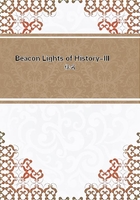
第112章
Now it must be confessed that the Poetry of Chaucer does not abound in the moral wisdom and spiritual insight and profound reflections on the great mysteries of human life which stand out so conspicuously in the writings of Dante, Shakspeare, Milton, Goethe, and other first-class poets. He does not describe the inner life, but the outward habits and condition of the people of his times.
He is not serious enough, nor learned enough, to enter upon the discussion of those high themes which agitated the schools and universities, as Dante did one hundred years before. He tells us how monks and friars lived, not how they dreamed and speculated.
Nor are his sarcasms scorching and bitter, but rather humorous and laughable. He shows himself to be a genial and loving companion, not an austere teacher of disagreeable truths. He is not solemn and intense, like Dante; he does not give wings to his fancy, like Spenser; he has not the divine insight of Shakspeare; he is not learned, like Milton; he is not sarcastic, like Pope; he does not rouse the passions, like Byron; he is not meditative, like Wordsworth,--but he paints nature with great accuracy and delicacy, as also the men and women of his age, as they appeared in their outward life. He describes the passion of love with great tenderness and simplicity. In all his poems, love is his greatest theme,--which he bases, not on physical charms, but the moral beauty of the soul. In his earlier life he does not seem to have done full justice to women, whom he ridicules, but does not despise; in whom he indeed sees the graces of chivalry, but not the intellectual attraction of cultivated life. But later in life, when his experiences are broader and more profound, he makes amends for his former mistakes. In his "Legend of Good Women," which he wrote at the command of Anne of Bohemia, wife of Richard II., he eulogizes the sex and paints the most exalted sentiments of the heart. He not only had great vividness in the description of his characters, but doubtless great dramatic talent, which his age did not call out. His descriptions of nature are very fresh and beautiful, indicating a great love of nature,--flowers, trees, birds, lawns, gardens, waterfalls, falcons, dogs, horses, with whom he almost talked. He had a great sense of the ridiculous; hence his humor and fun and droll descriptions, which will ever interest because they are so fresh and vivid. And as a poet he continually improved as he advanced in life. His last works are his best, showing the care and labor he bestowed, as well as his fidelity to nature. I am amazed, considering his time, that he was so great an artist without having a knowledge of the principles of art as taught by the great masters of composition.
But, as has been already said, his distinguishing excellence is vivid and natural description of the life and habits, not the opinions, of the people of the fourteenth century, described without exaggeration or effort for effect. He paints his age as Moliere paints the times of Louis XIV., and Homer the heroic periods of Grecian history. This fidelity to nature and inexhaustible humor and living freshness and perpetual variety are the eternal charms of the "Canterbury Tales." They bring before the eye the varied professions and trades and habits and customs of the fourteenth century. We see how our ancestors dressed and talked and ate; what pleasures delighted them, what animosities moved them, what sentiments elevated them, and what follies made them ridiculous. The same naturalness and humor which marked "Don Quixote" and the "Decameron" also are seen in the "Canterbury Tales." Chaucer freed himself from all the affectations and extravagances and artificiality which characterized the poetry of the Middle Ages. With him began a new style in writing. He and Wyclif are the creators of English literature. They did not create a language, but they formed and polished it.
The various persons who figure in the "Canterbury Tales" are too well known for me to enlarge upon. Who can add anything to the Prologue in which Chaucer himself describes the varied characters and habits and appearance of the pilgrims to the shrine of Thomas Becket at Canterbury? There are thirty of these pilgrims including the poet himself, embracing nearly all the professions and trades then known, except the higher dignitaries of Church and State, who are not supposed to mix freely in ordinary intercourse, and whom it would be unwise to paint in their marked peculiarities. The most prominent person, as to social standing, is probably the knight.